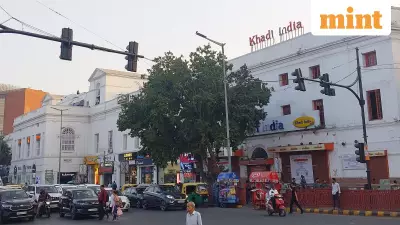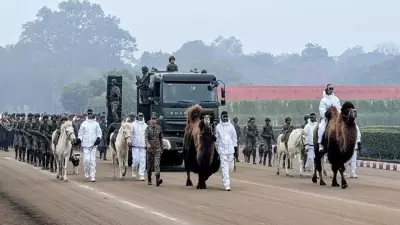
India's capital city Delhi recently became the epicenter of crucial discussions that will shape the future of urban development across the nation. Top experts and policymakers gathered to create a comprehensive roadmap for sustainable urban growth that addresses the unique challenges facing Indian cities.
National Workshop on Sustainable Urban Development
The event, organized by the School of Planning and Architecture, Delhi in collaboration with the National Institute of Urban Affairs, brought together leading minds from various sectors. The workshop took place on February 21, 2024, marking a significant step toward implementing climate-responsive urban planning across India's rapidly expanding urban landscapes.
Dr. Sanjay Gupta, the driving force behind this initiative as the principal investigator, emphasized the critical timing of these discussions. With India's urban population projected to reach 600 million by 2030, the need for sustainable urban development frameworks has never been more urgent. The workshop specifically focused on developing implementable strategies for the Climate Smart Cities Assessment Framework (CSCAF) 2.0 and the Ease of Living Index.
Key Focus Areas and Expert Contributions
Distinguished experts from multiple domains contributed to the day-long discussions. Dr. Debolina Kundu from the National Institute of Urban Affairs provided valuable insights into urban governance structures, while Dr. PSN Rao from the School of Planning and Architecture shared expertise on urban planning methodologies. The presence of Dr. KK Pandey from the Indian Institute of Technology, Roorkee added technical depth to the conversations about sustainable infrastructure.
The workshop addressed several critical components of urban sustainability, including urban planning, green cover, water management, and waste management. Each sector received detailed attention, with participants working to identify practical solutions that can be implemented at municipal levels across different Indian cities.
Implementing Climate-Responsive Urban Solutions
One of the primary outcomes of the Delhi meeting was the development of actionable strategies for the CSCAF 2.0 initiative. This framework represents a comprehensive approach to making Indian cities more resilient to climate change impacts while promoting sustainable growth patterns. The experts worked on creating assessment methodologies that cities can use to measure their progress toward climate goals.
The discussions also centered around the Ease of Living Index, which evaluates cities based on multiple parameters including quality of life, economic ability, and sustainability. This index serves as a crucial tool for urban local bodies to identify areas needing improvement and track their development progress over time.
Participants emphasized the importance of integrating traditional wisdom with modern technology in urban development. The blend of ancient Indian urban planning principles with contemporary sustainable technologies emerged as a key theme throughout the discussions.
Roadmap for India's Urban Future
The collaborative effort in Delhi has set the stage for transformative changes in how Indian cities approach development and sustainability. The workshop succeeded in creating a foundation for policies that balance rapid urbanization with environmental responsibility.
The outcomes of this expert convening are expected to influence urban development policies at both state and national levels. As Indian cities continue to grow at an unprecedented pace, the frameworks developed during this workshop will help ensure that this growth occurs in a sustainable, inclusive, and climate-responsive manner.
The timing of these discussions aligns with India's broader commitment to sustainable development and climate action. The expert recommendations will contribute significantly to the country's efforts to create cities that are not only economically vibrant but also environmentally sustainable and socially inclusive for all residents.





